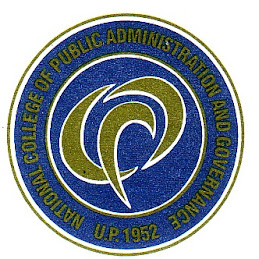
To popularize EcoGov at UP-NCPAG, I decided to bring EcoGov issues to the attention of the college's students, faculty members, and staff. For my first salvo, I invited Atty. Antonio Oposa, a world-reknown environmental lawyer to speak about "Environmental Audit." Luckily he accepted the invitation. This was sometime in August 2005, if I am not mistaken. Unfortunately, I was not able to take a picture of him as I was busy managing the forum (I was also a speaker at that time). I have attached a picture from another website (INECE). And I was not able to get the gist of his presentation (sorry for that).
Why is Atty. Oposa famous? You can get ideas from below:
Case Summary
Facts: This case originating from the Regional Trial Court of Makati, Metro Manila was initiated by several minors, as represented by their parents, including via their representation the generations yet unborn. As the original defendant, Secretary Factoran of the Department of Environment and Natural resources was impleaded as such.
They assert that they have the existing Constitutional right to a balanced and healthful ecology.
Issue: Whether or not the Plaintiffs are real parties in interest.
Rule: Plaintiff has the standing. The complaint focuses on a fundamental natural and legal right enshrined in the Constitution. The same right and source of obligation can justify the claimed inter-generational responsibility. Hence, they may bring the matter at hand to court and be granted the proper recognition.
Section 16, Article II which recognizes above all: THE STATE SHALL PROTECT AND ADVANCE THE RIGHT TO A BALANCED AND HEALTHFUL ECOLOGY IN ACCORD WITH THE RHYTHM AND HARMONY OF NATURE.
Source: Edgar B. Pascua (n.d.), “The Legal Implications of the case of Oposa v. Factoran,” < http://www.geocities.com/green_juris/artopfacjet.html > 30 January 2006.


No comments:
Post a Comment